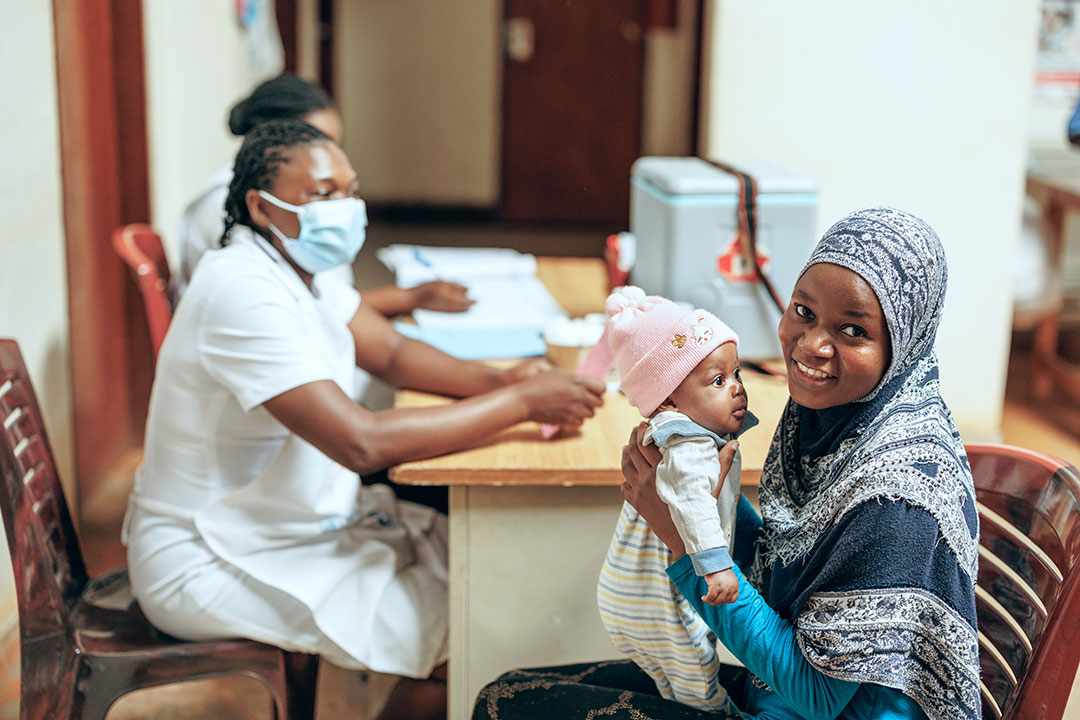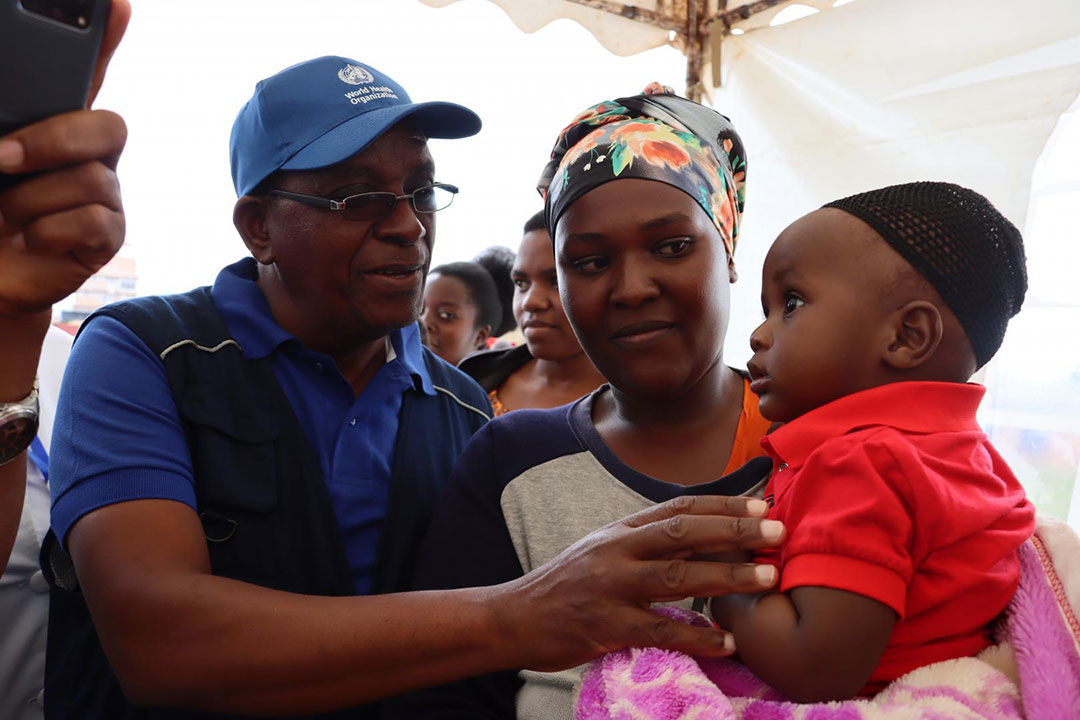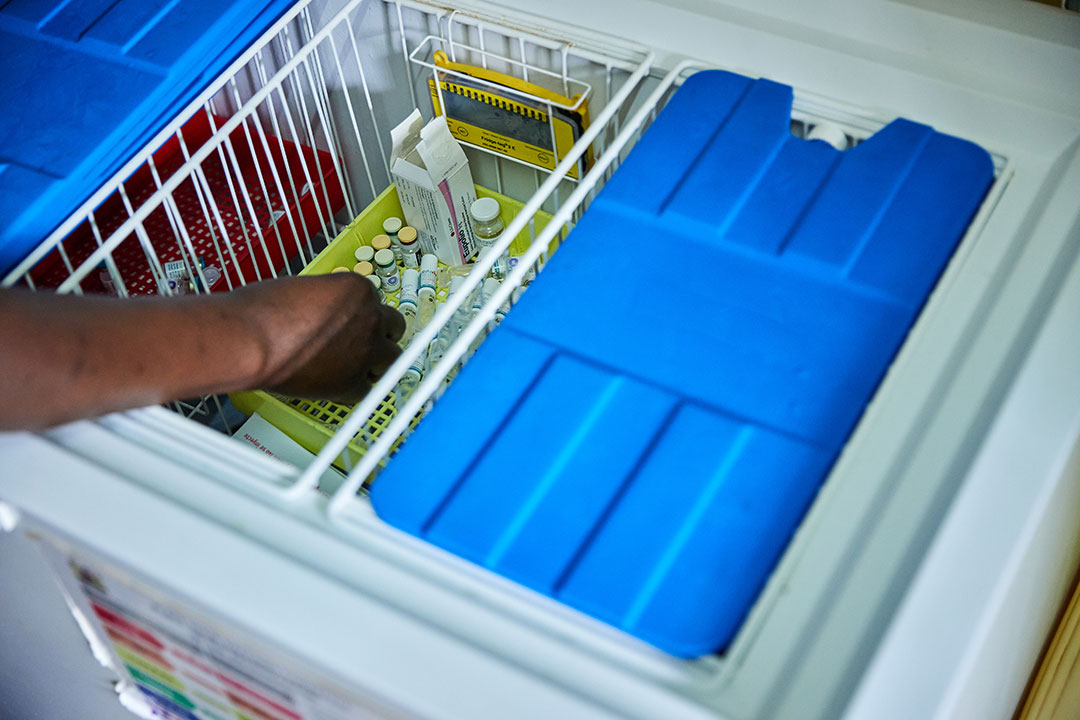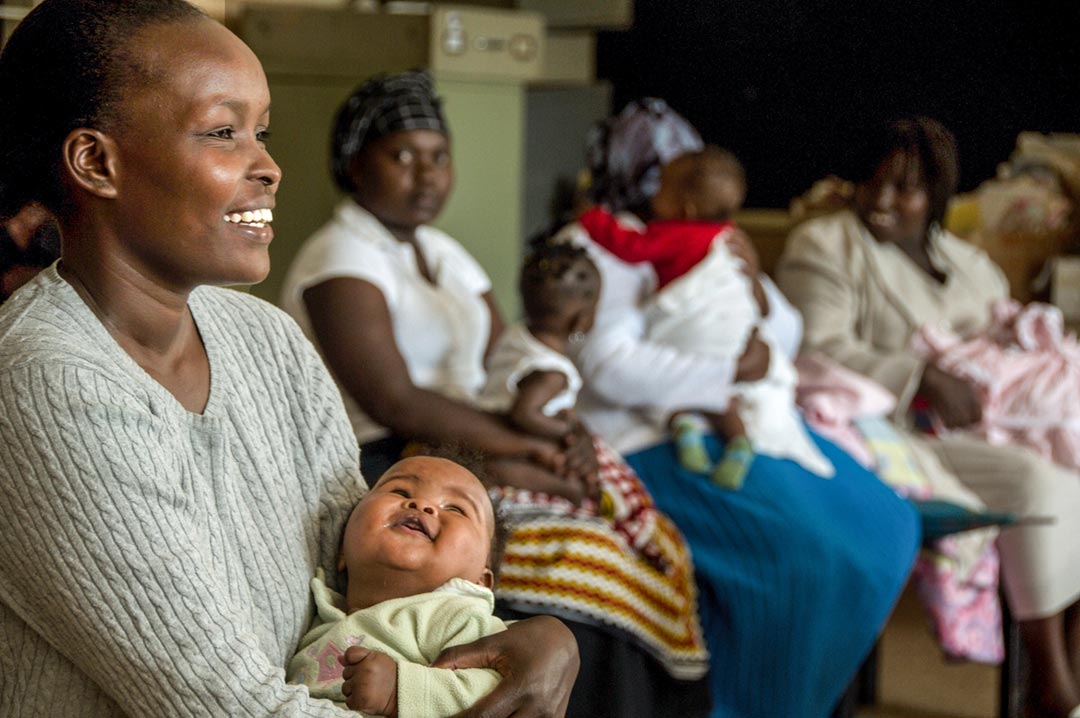On Angola’s borderlands, communities brace for cholera
Angola’s last cholera outbreak was in 2017 – but with neighbouring countries battling epidemics, health workers and civilians in frontier provinces are getting ready.
- 18 April 2024
- 6 min read
- by Gaspar Micolo
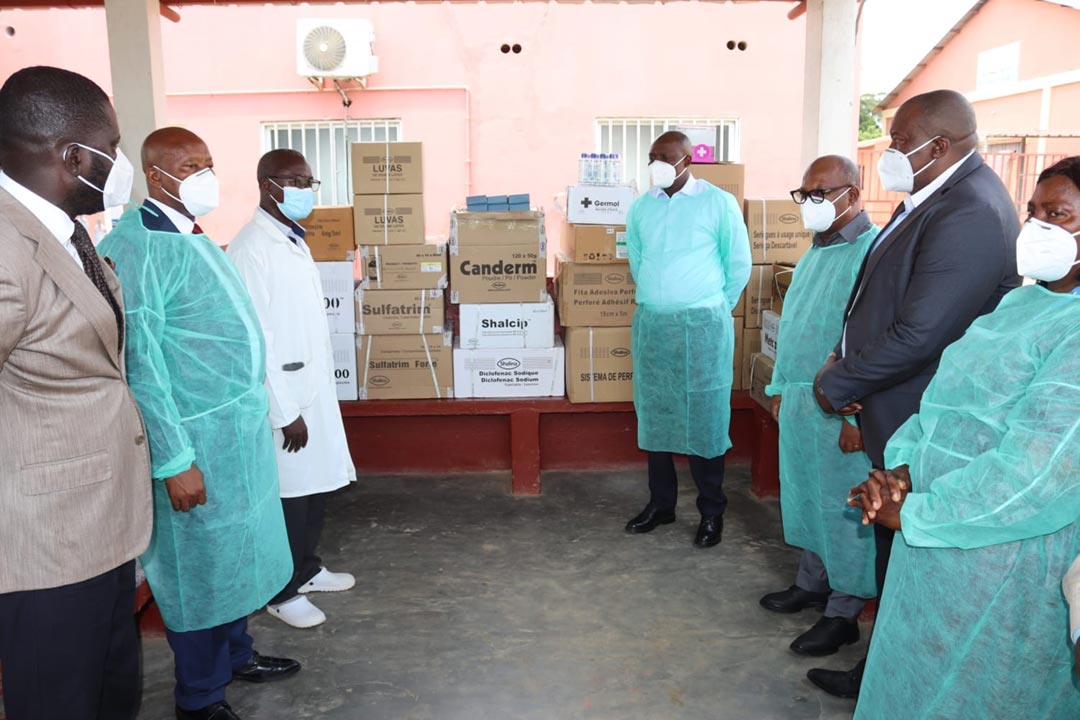
A small field hospital with capacity to admit 20 patients opened at the beginning of February 2024, in the municipality of Lóvua, province of Lunda-Norte on the northern edge of Angola. Doctors, nurses and laboratory technicians were equipped and prepared to combat a disease that still needed to be explained to the population.
“We have to be prepared to respond to possible cases of the disease. We cannot be surprised by the outbreak, which is considered lethal.”
– António Mussumari, municipal administrator of Lóvua
The disease was cholera – a potentially deadly, often explosively epidemic bacterial disease that is transmitted through contaminated food and water. Since the beginning of 2023, no fewer than 16 African countries have reported transmission of the disease, including major outbreaks in Zambia, to Angola's east, and the Democratic Republic of the Congo (DRC), the country's northern neighbour.
Readying the border
In Lóvua, awareness campaigns began. It was necessary, the local health establishment realised, to create the logistical, technical and human conditions to provide an immediate response to possible cases of cholera. Lóvua municipality shares a 220-kilometre border with the DRC. On the other side of the border lies Tshikapa, a Congolese city separated from Angola by just 40 kilometres.
"We have to be prepared to respond to possible cases of the disease. We cannot be surprised by the outbreak, which is considered lethal," says the municipal administrator of Lóvua, António Mussumari.
The new medical centre in Lóvua has three wards and is the second field hospital installed in Lunda-Norte province. The first, much larger, is located in the city of Mussungue, and has a 200-bed capacity.
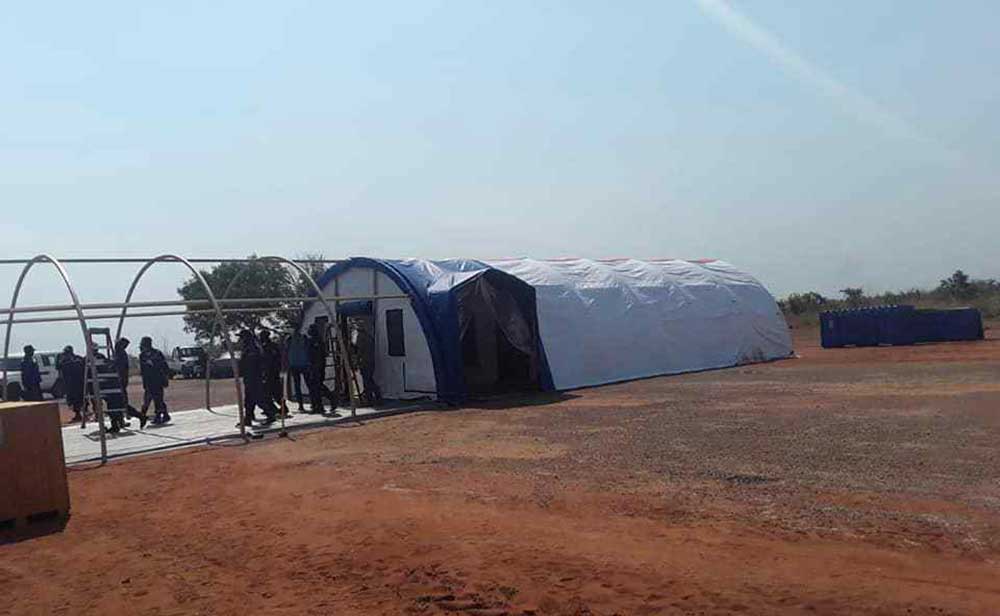
Credit: Edições Novembro
Setting up and equipping hospitals in border municipalities and raising awareness among populations about prevention and care is an important part of how Angola is preparing to combat the cholera that is ravaging neighbouring countries. Similar measures are being carried out in ten of the country's 18 provinces by a national team of 28 experts, including eight from the World Health Organization (WHO). Preventative efforts are concentrated in the provinces of Cuando Cubango and Moxico, close to the border with Zambia, and in the provinces of Lunda-Sul and Lunda-Norte, abutting the DRC.
Over the river
It's a sunny morning in Chiluage, a community of 9,000 inhabitants in Lunda-Sul province. Five kilometres away, the Cassai River draws the boundary between Angola and the DRC. Some here have been receiving information from local authorities for months about the dangers of cholera and the importance of promptly seeking care when symptoms set in. The treatment for cholera relies heavily on oral rehydration solution (ORS), a simple, inexpensive measure that has saved millions of lives.
Measures such as frequent hand washing, maintaining personal hygiene, treating water with bacteria-killing solutions, or submitting it to boiling temperatures before consumption, and washing fruit with treated water are among the authorities' recommendations.
It was in mid-January that the country inaugurated its Contingency Plan to Combat Cholera, launched by the Minister of Health, Sílvia Lutucuta, and supported by the WHO.
"I reinforced my hygiene, always keeping the house clean and washing my hands with soap," says Aricela Mateus, who boiled water to drink on a stove in her back yard. She confesses that she didn't do this before the authorities issued the alert. The water they consume comes from the river that connects the two countries, and could become a source of contagion. In fact, even the water supplied by a small local fountain is boiled by locals before use, although the authorities guarantee that it is drinkable, and distribute dilute chlorine for its sanitation.
Have you read?
Among the huts and vast terrain connecting this rural commune, there are small two-metre-square toilet buildings – a measure to guard against the risk of open defecation.
It's not just the population that is taking on the threat. The Chiluage medical centre also makes sure to be prepared for possible cases of cholera. José Mário, director of the town's small hospital, guarantees it. A doctor himself, he is satisfied that his colleagues are vigilant in looking out for cholera cases among the pathologies they see each day.
From here, you can see neighbouring DRC across the water. In fact, it is the view that trader Eva Ipanga enjoys every Saturday, which is market day – the day he crosses the river in a precarious boat to buy, in the DRC, animals such as cows, goats and sheep, and food products like peanuts and edible insects. Angolans take products such as soap, cooking oil and biscuits to trade with their Congolese neighbours.
Commercial exchanges between neighbours are not beyond the control of the health authorities. Those crossing the border undergo small tests, such as having their temperatures read, and are registered for monitoring at the local hospital.
National plans, calls for regional cooperation
Angola, currently at Level 2 alert – Level 3, the maximum, is announced when disease cases are confirmed – is intensifying preparedness measures to effectively respond to the potential reappearance of the disease in the country, after outbreaks in 2006 and 2011.
According to the national director of Public Health, Helga Freitas, the DRC and Zambia are registering a rapid increase in cholera cases, prompting the Angolan Government to create an inter-ministerial commission to define strategies to provide a timely and efficient response to a possible emergence of cholera in the country.
Freitas said that the levels of epidemiological surveillance are being reinforced in all provinces that border the DRC and Zambia, adding that all technicians from the National Directorate of Public Health are being trained to safely and quickly approach any citizen with cholera.
"The country has no registered cases of cholera so far," assured a statement from the Ministry of Health, emphasising that health authorities are on high alert and have reinforced epidemiological and laboratory surveillance measures.
Application for cholera vaccines from the Gavi-supported global stockpile is foreseen in the Ministry of Health's plan, but the country will only be able to access the scarce shared repository of doses if a case of the disease is registered.
Helga Freitas reminded Jornal de Angola that the vaccine is not included in the national vaccination calendar, and is only indicated in specific situations. "That's why it's important to invest in prevention measures, such as proper hand and food hygiene, before consuming them."
Despite this, heavy rainfall, poor sanitation and limited access to clean water increase the risk of outbreaks of cholera and other waterborne diseases.
For doctor Jeremias Agostinho, it's important to remember that multiple diseases – not just cholera – are connected to the way solid waste is collected and treated, as well as the treatment given to water before consumption. "These factors determine the emergence of diseases such as dengue fever, malaria, diarrhoea, cholera, typhoid fever and yellow fever."
The public health specialist argues that public health units should be closer to citizens to provide appropriate support to communities, taking into account the degree of vulnerability to which people are subject.
Acting president of the Southern African Development Community (SADC) and Angolan head of state João Lourenço defended, at the beginning of February, the urgency of coordinated and effective action to stop the outbreak.
"The public health crisis plaguing our region represents a serious threat to sustainable development and the well-being of our people. At this critical moment, we must recognise the urgency of our response and the need for coordinated and effective action, as the cholera knows no borders and requires a regional approach to tackle it," he said.
More from Gaspar Micolo
Recommended for you
